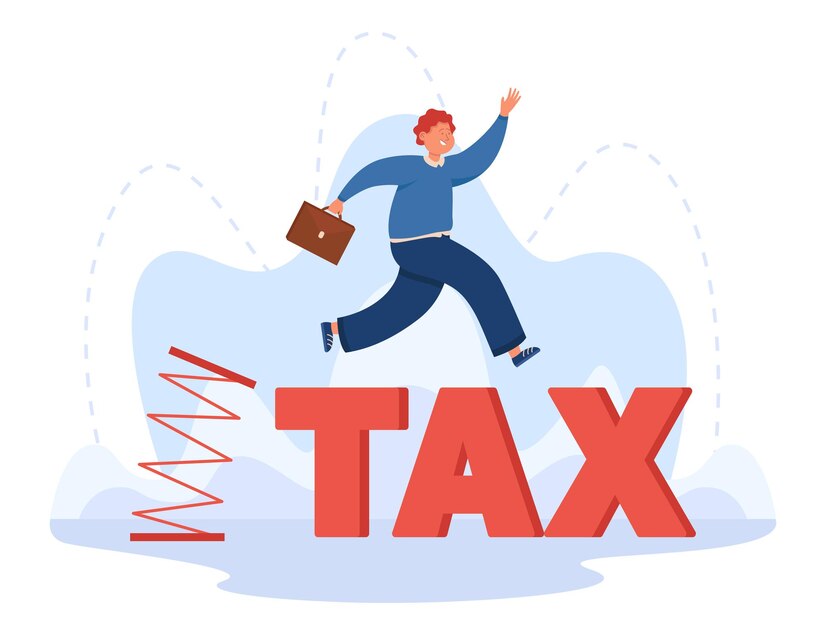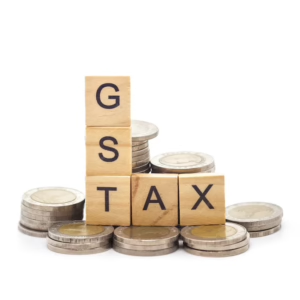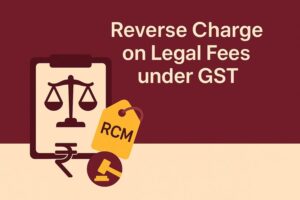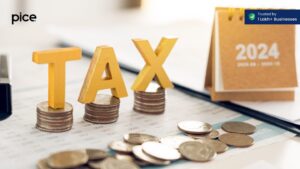Overview of GST on ice cream: Taxes, Schemes & Exemptions
- 17 Aug 24
- 18 mins

Overview of GST on ice cream: Taxes, Schemes & Exemptions
Key Takeaways
- GST Rate Applied: Wooden ice cream sticks and spoons are subjected to a 12% GST rate.
- Uniform Tax Treatment: The decision ensures a consistent tax treatment for similar goods within the food service industry.
- Impact on Pricing: This ruling affects pricing strategies for manufacturers and suppliers of these products.
- Compliance Requirement: Businesses dealing in these items need to align their pricing and accounting practices according to this GST rate.
- Clarification for Businesses: The ruling provides clear tax guidance to businesses involved in producing or selling these wooden products.
The Goods and Services Tax (GST) has reshaped the taxation landscape in India, impacting various industries, including the beloved ice-cream sector. This article explains into how GST applies to ice cream, examining everything from taxability and available input tax credits (ITC) to the implications of rulings by the Authority for Advance Rulings (AAR) and the GST rates and HSN codes specifically applicable to ice cream.
Scope of Taxation
The scope of taxation for ice cream under the GST (Goods and Services Tax) regime in India is quite specific and has been subject to clarifications over the years. Ice cream is taxed at a standard rate of 18% under HSN (Harmonized System of Nomenclature) code 2105. Regardless of whether manufacturers or ice cream shops sell the product, this rate is applicable. Importantly, ice cream producers and parlors cannot opt for the GST composition scheme, which typically allows smaller businesses to pay a nominal rate of tax if they meet certain conditions.

There have been notable clarifications regarding the tax treatment of ice cream, especially in the context of ice cream from a parlor. It has been specified that ice cream sold by parlors does not qualify as a restaurant service but as a supply of goods. This clarification is important because services typically have different tax implications under GST.
Even when the sale involves service elements, such as serving ice cream scoops in a parlour, it is still considered a supply of service or goods. Therefore, such sales attract an 18% GST rate, and businesses are eligible to claim Credit of input tax (ITC) for taxes paid on inputs used to make the ice cream.
Additionally, there was a period of confusion before this clarification where in some parlours earlier, ice creams attracted 5% GST without claiming ITC, but these cases have been regularized to prevent unnecessary litigation, acknowledging that these businesses have foregone the ITC they could have claimed.
GST Rates on Ice Cream
The GST rates on the supply of ice cream have been a topic of interest and confusion due to varying interpretations and practices before clarifications were issued. Here's a summary of the ice cream GST rates and related services:
Ice cream typically falls under an 18% GST rate, classified under the HSN code 2105. This holds true regardless of whether manufacturers or retail establishments like parlors sell the ice cream. Ice cream parlours that sell pre-manufactured ice cream are considered to be making a supply of goods, not services. This means they attract the 18% GST rate rather than the lower rates that might apply to some restaurant services.
- Composite Supply Considerations
When ice cream is sold along with other services (like serving in a parlour), the principal supply dictates the GST rate. Since the primary component is the ice cream (a good), the entire transaction is taxed at the rate applicable to ice cream, which is 18%.
- Specific Cases and Clarifications
A significant clarification came in 2021, when it was determined that ice cream parlours selling pre-manufactured ice cream do not constitute restaurant services and thus should charge GST at 18% with eligibility for ITC (Input Tax Credit).
There was confusion earlier about whether these parlours should charge 5% without ITC, leading to some businesses doing so. However, clarifications were issued that past practices of charging 5% without ITC are considered compliant to avoid litigation, although no refunds would be provided for those who might have paid at the higher rate.
Impact of GST Rates
The impact of the rate of GST on ice cream largely centers around the clarity and uniformity it brings to taxation within the food industry, particularly for food items sold in different forms and settings, like ice cream parlors and restaurants. Here’s a summary of the main points:
- Uniformity in Taxation
The implementation of a uniform GST rate of 18% for ice cream helps simplify the tax structure across different sales venues, whether it is sold in supermarkets, ice cream parlors, or restaurants. This rate applies to pre-packaged items as well as those sold in scoops from parlors.
- Input Tax Credit (ITC) Benefits
Ice cream parlors and manufacturers can claim ITC on the GST paid on their inputs (ingredients, equipment, etc.). This provision helps to reduce the overall cost of production and potentially the final price to consumers, making the business operationally more efficient.
- Clarification on Service vs. Goods
The classification of ice cream sold in parlors as a supply of goods rather than a service avoids the lower tax rates associated with restaurant services, which can vary and often do not allow ITC. This clarification ensures that even when service elements are involved (like serving in a parlor), the entire supply is considered under the goods category and taxed at 18% .
- Regulatory Clarity
Past confusions, where parlors were unsure whether to charge 5% without ITC or 18% with ITC, have been addressed by regulatory clarifications, ensuring compliance and preventing potential legal disputes over tax rates.
- Economic Impact
The higher GST rate can influence the pricing strategies of ice cream businesses and might affect consumer choices, especially in comparing the cost of ice cream to other dessert options available at a lower tax rate. The ability to claim ITC does not always offset the higher rate, depending on the business model and customer price sensitivity.
Availability of ITC
The availability of Input Tax Credit (ITC) for ice cream production under the GST framework is an essential aspect for businesses to manage their tax liabilities effectively. Here’s an overview of how ITC works in the context of ice cream manufacturing and sales:
- Eligibility for ITC
Businesses involved in the production or sale of ice cream are eligible to claim ITC for the GST paid on inputs and input services. This includes raw materials like milk, sugar, flavors, as well as related services such as refrigeration, transportation, and marketing expenses.
- Conditions for Claiming ITC
To claim ITC, the inputs and services must be used exclusively for the production or sale of taxable goods, i.e., ice cream in this case. The GST invoices must be in the name of the business, and proper records must be maintained to support the claim.
- Impact on Cost and Pricing
By claiming ITC, ice cream manufacturers and parlors can significantly reduce the cost burden of GST paid on inputs. This reduction can either lead to lower prices for consumers or help maintain profit margins despite the high GST rate of 18% on ice cream.
- Restrictions and Limitations
It's important to note that ITC cannot be claimed for goods or services used for personal use, exempt supplies, or for goods that are stolen, lost, or destroyed. Furthermore, ITC claims must be filed within the stipulated time frames to avoid lapses.
- Documentation and Compliance
Businesses must ensure accurate and timely filing of GST returns to claim ITC. The documentation should clearly indicate the use of inputs in the production or sale of ice cream, and regular audits may be conducted by tax authorities to verify the authenticity of the claims.
Eligible Expenses on Ice Cream

When discussing the availability of Input Tax Credit (ITC) for ice cream production, it's important to consider what expenses are considered eligible under GST regulations.
Here are some of the main categories of expenses that can qualify for ITC in the context of ice cream manufacturing and sales:
- Raw Materials
Ingredients used in the making of ice cream, such as milk, cream, sugar, flavors, and stabilizers, are eligible for ITC. The GST paid on these ingredients of service can be credited against the GST liability on the final product.
- Packaging Materials
Expenses related to packaging materials like ice cream tubs, cones, cups, and wrappers qualify for ITC, as they are integral to the presentation and sale of the product.
- Capital Goods
GST paid on capital goods, such as ice cream making machinery, freezers, and storage units, is eligible for ITC. This helps reduce the capital cost of setting up or upgrading facilities.
- Utility Services
Services like electricity and water, which are essential for manufacturing processes, also qualify for ITC, provided they are exclusively used for the commercial production of taxable goods.
- Other Services
Marketing and advertising services, transport services for distribution, and other outsourced services directly related to the production and sale of ice cream are eligible for claiming ITC.
- Repairs and Maintenance
GST incurred on the repair and maintenance of equipment used in the production of ice cream can also be claimed as ITC, ensuring businesses can maintain their operations efficiently without a heavier tax burden.
AAR on GST for Ice Cream
The Authority for Advance Rulings (AAR) has issued various decisions clarifying the GST implications for ice cream sales in different scenarios. One significant decision is that parlors that only sell pre-manufactured products and don't engage in the preparation or cooking of ice cream are considered to be supplying goods rather than services satisficastion means that such sales attract a GST rate of 18%, and the businesses are eligible for input tax credit (ITC).
Initially, there was some confusion in the industry regarding the applicable GST rate, especially whether ice cream parlors should charge GST at the restaurant rate of 5% without ITC or at 18% with ITC. Clarifications issued by the Central Board of Indirect Taxes and Customs (CBIC) via circulars have resolved this by specifying that, effective from October 6, 2021, the supply of ice cream by parlors is to be taxed at 18% with the eligibility for ITC.
This resolution also covered the treatment of past transactions where parlors might have charged 5% GST without ITC, stating that such cases would be treated as compliant to avoid litigation, but no GST refunds would be issued for payments already made at the 18% rate.
The Authority for Advance Rulings (AAR) has clarified that wooden ice cream sticks and wooden ice cream spoons are subject to a GST rate of 12%. This decision emphasizes that these items, commonly used in the food industry and by consumers, fall under a specific category that attracts this GST percentage
Further, special scenarios such as bulk orders or supplies involving additional ingredients like fruits and sauces were also addressed, noting specific circumstances under which different GST rates or rules might apply.
These rulings are crucial for ice cream parlors and manufacturers to understand their tax obligations and rights regarding ITC under the GST framework. For more detailed guidance, reviewing the specific AAR rulings or consulting with a tax professional would be advisable.
GST Schemes and Exemptions
Under the GST framework in India, certain schemes and exemptions are applicable to various goods and services, including ice cream. Here are some key points concerning GST schemes and potential exemptions for ice cream:

- Standard GST Rate
Ice cream typically falls under a standard GST rate of 18%, which is applied unless specific exemptions or lower rates are prescribed under GST law or rulings by authorities like the Authority for Advance Rulings (AAR).
- Input Tax Credit (ITC)
Generally, businesses involved in the sale of ice cream can avail of Input Tax Credit (ITC) for taxes paid on inputs used in the manufacturing or sale process, such as ingredients and equipment, provided the final product is not exempt from GST.
- GST Exemptions
There are no specific exemptions under the standard GST rules exclusively for ice cream. All supplies of ice cream are generally subject to GST unless covered under a special exemption for specific scenarios, which would typically be detailed in GST notifications or circulars.
- Special Schemes
The Composition Scheme under GST, which allows small businesses to pay GST at a lower rate without the benefit of ITC, is not available to ice cream manufacturers or sellers who opt for this scheme because it typically does not cover businesses that serve ice cream, as they are classified as restaurant services when engaged in any form of cooking or preparation.
- Treatment of Different Sales Modalities
Sales of ice cream through different channels, such as parlors versus packaged products in retail stores, may follow the general GST treatment but do not benefit from differentiated rates unless specifically ruled by authorities like the AAR.
Composition Scheme
Under the GST regime in India, the Composition Scheme is a simplified tax structure designed to ease compliance for small businesses. Here’s how it relates to ice cream production and sales:
- Overview of the Composition Scheme
The Composition Scheme allows eligible businesses to pay GST at a fixed rate on their turnover, which is significantly lower than the normal rates. This scheme is intended to simplify GST filings, making compliance easier and reducing the burden of detailed record-keeping and frequent tax filings.
- Eligibility Criteria
This scheme is generally available to small businesses with an annual turnover of up to Rs. 1.5 crore (Rs. 75 lakhs for special category states). However, it's crucial to note that manufacturers of ice cream (or any other edible ice, whether or not containing cocoa) are explicitly barred from opting for the Composition Scheme as per the GST rules.
- Implications for Ice Cream Businesses
Since ice cream manufacturers are excluded from the Composition Scheme, they must register under the regular GST regime and comply with the standard GST rate of 18%. This exclusion of ice cream applies because it is often considered a luxury or non-essential food product, which typically attracts higher tax rates and stricter compliance under GST.
- Benefits and Drawbacks
While the Composition Scheme offers the benefit of lower tax rates and simpler compliance, being excluded means ice cream manufacturers and sellers must manage the full implications of regular GST compliance. This includes filing monthly returns and maintaining detailed records of inputs and outputs to claim Input Tax Credit (ITC).
Challenges in Compliance
When it comes to GST compliance for ice cream sales, several challenges can arise, particularly due to the complexities of tax rates and conditions under which the products are sold. Here are some of the key challenges businesses in the ice cream industry might face:
- Classification of Products
Determining whether an ice cream product should be classified as a good or a service can be complex, especially for parlors that serve ice cream. This classification affects the GST rate applied and the eligibility for Input Tax Credit (ITC).
- Applying the Correct GST Rate
Ice cream generally attracts a standard GST rate of 18%. However, special situations or product types may be subject to different rates, and keeping track of these variations can be challenging.
- Eligibility for Composition Scheme
Ice cream manufacturers are not eligible for the GST Composition Scheme, which offers simpler compliance and a lower tax rate. This exclusion requires businesses to manage more detailed compliance processes.
- Claiming Input Tax Credit
Proper documentation and accurate classification of input services and goods are necessary to claim ITC effectively. Mistakes in claiming ITC can lead to audits and penalties.
- Maintaining Compliance Records
Keeping detailed records that comply with GST regulations is crucial. This includes sales records, GST paid on purchases, and other transaction details. Failure to maintain these records can result in compliance issues.
- Adapting to Regulatory Changes
GST rates and rules have undergone several changes since the tax's inception, and businesses must stay updated on these changes to remain compliant.
Strategic Recommendations
For businesses involved in the production and sale of ice cream under the GST regime in India, adopting strategic measures is crucial for enhancing operational efficiency and compliance. Here are some strategic recommendations:
- Stay Informed on Regulatory Changes
Regularly update yourself with changes in GST regulations that affect the ice cream industry. This can be achieved through subscriptions to newsletters from reliable tax advisory services, and regularly checking updates on the official GST portal.
- Leverage Technology for Compliance
Invest in robust accounting and inventory management software that can handle GST calculations, maintain comprehensive records, and manage inventories effectively. This technology can help automate tax calculations, file returns on time, and maintain compliance with less manual effort.
- Optimize Supply Chain Management
Analyze and optimize your supply chain to reduce costs. Consider food suppliers for raw materials to reduce transport costs and minimize supply chain disruptions. Efficient supply chain management can also reduce wastage and improve your bottom line.
- Training and Development
Regularly train your staff on GST compliance, especially those handling accounting, billing, and tax filing processes. Understanding the nuances of GST rates, input tax credits, and compliance requirements is crucial for error-free financial management.
- Seek Professional Advice
Consult with tax professionals for expert advice on GST implications specific to your business operations. Professional guidance is particularly important for complex compliance issues or strategic tax planning.
- Focus on Marketing and Customer Engagement
Develop marketing strategies that focus on building brand loyalty and increasing customer engagement. This could include loyalty programs, promotions, and engaging customers through social media. Effective marketing can drive sales and create a more resilient business.
- Explore New Market Opportunities
Consider expanding your product range or exploring new markets to increase revenue streams. Innovations in product offerings, such as introducing low-calorie or sugar-free options, can cater to a broader audience and tap into health-conscious consumer segments.
- Regular Compliance Reviews
Conduct regular reviews of your GST compliance status to ensure that all aspects of your tax filings are accurate and up-to-date. This proactive approach can help avoid penalties and ensure that you are making the most of available tax credits and deductions.
Conclusion
The complexities of GST regulations in the ice cream industry require diligent management, a proactive approach to compliance and strategic planning. From understanding the nuances of GST rates and classification to leveraging technology for efficient compliance, ice cream businesses must stay informed and adaptable. The implementation of robust accounting systems, ongoing training for staff, and consultation with tax professionals are essential for maintaining compliance and optimizing business operations.
Moreover, exploring new market opportunities, optimizing supply chain management, and focusing on customer engagement strategies can drive growth and sustainability. As the industry continues to evolve under the GST regime, the ability to adapt to regulatory changes and market demands will be crucial for the success of ice cream businesses in India.
While the challenges of GST compliance are significant, they also provide an opportunity for businesses to streamline their operations and enhance their competitive edge in the market. By staying informed, seeking expert advice, and implementing strategic business practices, ice cream manufacturers and sellers can navigate GST regulations effectively and thrive in this dynamic industry.
💡Facing issues on paying your GST payment? Then download PICE business payment app the solution to make your GST payments easily. Take a demo session now to see how it works for you.
 By
By 

















